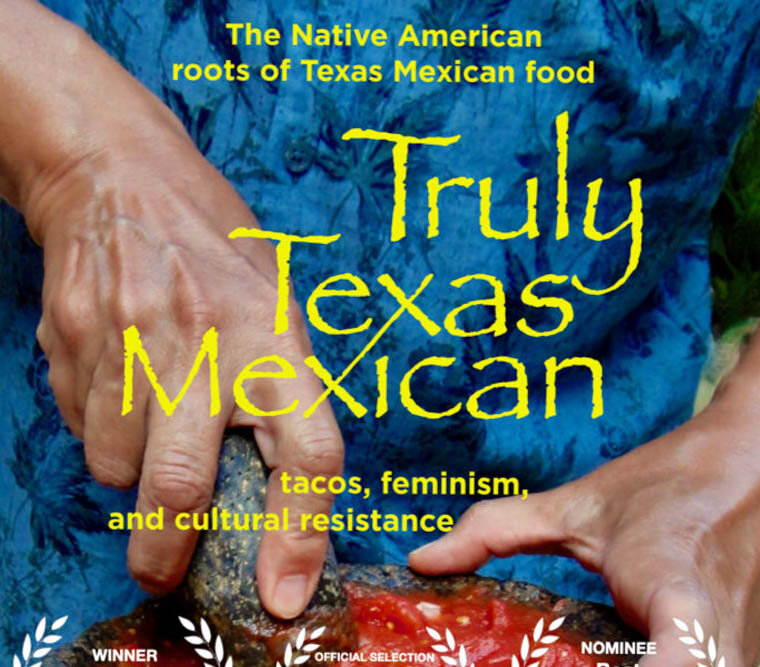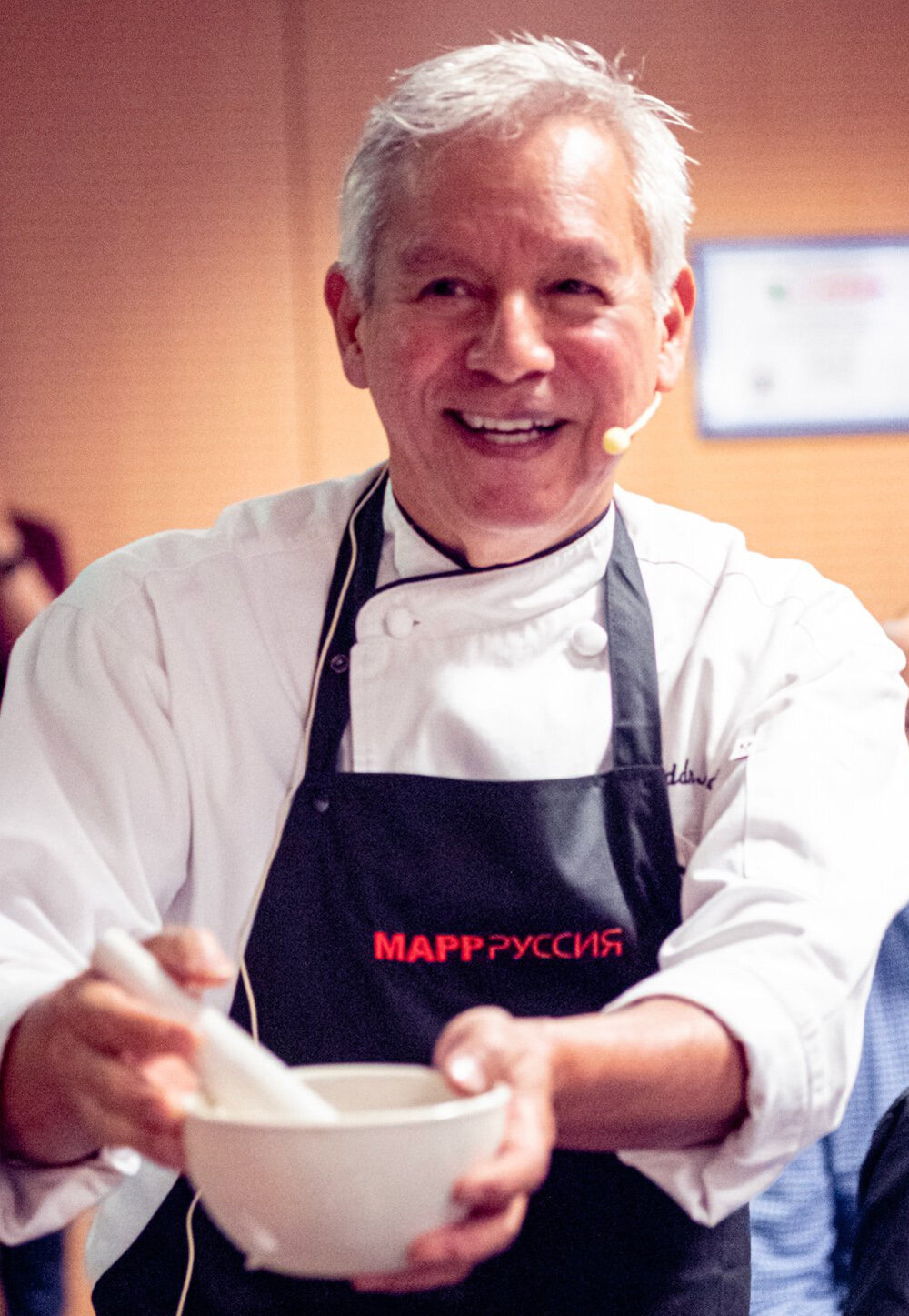Esperanza Peace and Justice Center Hosts Truly Texas Mexican: Food Plática
April 7, 2021 - San Antonio
Truly Texas Mexican focuses on the erasure of Native American culture and the racism endured in the culinary world. The film features chef/writer Adán Medrano, director Aníbal Capoano, and producers Christine Ortega and Virginia Díaz Laughlin. Courtesy Images.
By: Valeria Torrealba - Senior Reporter, San Antonio Sentinel
The Esperanza Peace and Justice Center hosted its virtual Truly Texas Mexican Food Plática on April 1, featuring executive producer, chef and writer Adán Medrano along with director Aníbal Capoano, producer Virginia Díaz Laughlin and Christine Ortega.
According to the film synopsis, over time and during conquest, Texas Mexican food sustained the Native American community’s memory and identity. Cooking foods like nopalitos, deer, mesquite and tortillas, indigenous women led the cultural resistance against colonization. Comida casera (home cooked food) was made famous in the late 1800s by indigenous businesswomen and chefs, all who operated outdoor diners in downtown San Antonio. They would later be dubbed Chili Queens and the film explores their battles with racism and being forced out of business.
The plática, hosted by Esperanza's Conjunto Member Lilliana Saldaña, kicked off with each panelist presenting themselves and the work they have done for the film. Saldaña shared a few words of endearment towards the film, relating the story to her own life and experiences as an educator.
“There’s so many things in the film that really touch close to my heart,” Saldaña said. “It’s the first documentary I see where Texas Mexican food is featured and is dignified. It features the work, the contributions of indigenous [people] and women in sustaining Mexican American food ways.”
The film, throughout the entirety of its production, was a collaborative work between Medrano, Capoano, Ortega and Díaz. Seeking to empower the Mexican-American and Latinx community, Truly Texas Mexican dives into the intimate stories that keep alive more than just the cooking traditions of Mexican-American and Latinx culture.
“That’s really what it’s about. Like Aníbal said — the untold stories. They’re untold. We have been suppressed, we have been oppressed, we have been erased, except in the intimate spaces of family and of friendships,” Medrano said. “There are many, many stories that are yet to be told.”
Ortega emphasized the importance and validity of having traditions be passed down by word-of-mouth, stating the strength of cooking and bonding over the traditional act of it.
“The story of [Truly Texas Mexican] is about reclaiming knowledge. The knowledge that we have to our families is very real,” Ortega said. “Cooking is passed down through the oral tradition, through the act of actually cooking. Those traditions are very strong, very true — it doesn’t matter what ethnic background you have. The act, experience, celebration of cooking is a way of reclaiming knowledge that is true, that is indisputable.”
“The women are very strong, very powerful, with a lot of conscience and compromise. And that speaks for itself. We wanted to emphasize on this topic. I thought it was a story that combined a lot of things. For me, the themes that were perceived as just Texan but are still shared in my own home country. I wanted to get to know a new culture and transform myself through that experience.” - Aníbal Capoano
Despite the discrimination, other women followed in the Chili Queens’ footsteps and now tell their story. The film weaves through Texas cities, naming the racism that erased Native American history and celebrating the food that kept alive the community’s living memory and heritage. Chefs, artists and community leaders open up about intimate food experiences that shape who they are today.
“What’s very obvious and prominent in the film is that the producer and the production team made things very personal. When you watch the film, you’re going into people’s homes, into these very powerful women who have a sense of who they are and continue to share that,” Ortega said. “It is about cultural resistance. It is about knowing what our place is within the context of our family, within the context of our world, and then expressing that through food and bringing about those special moments for people.”
Truly Texas Mexican tells the hardships of the Chili Queens as well, specifically highlighting how they overcame discrimination and marginalization in the food industry — a workspace that is largely dominated by males that silences the women and their accomplishments all too often. The women’s story offers a different perspective in the industry, one which Capoano hopes changes the way people perceive Mexican-American and Latinx culture.
“The women are very strong, very powerful, with a lot of conscience and compromise. And that speaks for itself. We wanted to emphasize on this topic,” Capoano said. “I thought it was a story that combined a lot of things. For me, the themes that were perceived as just Texan but are still shared in my own home country. I wanted to get to know a new culture and transform myself through that experience.”
A harsh reality that marginalized communities face is the lack of nutritious food that also is affordable. Truly Texas Mexican emphasized on this issue, with Medrano recalling colonizers taking indigenous food, making it a luxury for those who had cultivated it and a necessity for those who pried it from their hands. Ortega mentioned a personal experience — one that still stuck with her to this day regarding food insecurity.
“I remember talking to one of my family members and saying ‘I would highly suggest you start buying produce that is fresh and get away from white foods and things that are more processed.’ She, to this day — I remember clearly — she said ‘I cannot afford to buy healthy food all the time.’ That’s a reality too for our community,” Ortega said. “We cannot always afford to buy — especially for a larger family — foods that are going to be nutritious all the time.”
Truly Texas Mexican explores the Mexican-American and Latinx cultures through traditions deeply rooted in their lifestyles. The act of cooking and sharing recipes being powerful ones allow for deeply intertwined stories regarding these communities to be told, and this film allows the conversation to take place.
“Se alinearon los planetas, [The planets aligned themselves]” Capoano said. “I think that this film can change the way in which this culture is seen from the outside, as well as the food that defines it.”
A trailer of the film can be found on the film’s website.
Valeria Torrealba is an opinions columnist and public relations assistant at the University Star, a student publication of Texas State University. Email her at reporter@sasentinel.com






